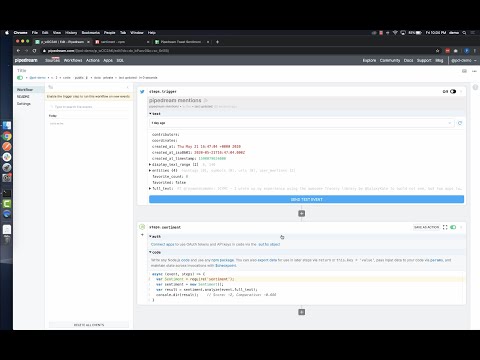What do you want to automate
with Google Sheets and Chargify?
Prompt, edit and deploy AI agents that connect to Google Sheets, Chargify and 3,000+ other apps in seconds.
Trusted by 1,000,000+ developers from startups to Fortune 500 companies
Popular Ways to Connect Google Sheets with Chargify#
Popular Google Sheets and Chargify Triggers#
Popular Google Sheets and Chargify Actions#
Add a single row of data to Google Sheets. Optionally insert the row at a specific index (e.g., row 2 to insert after headers, shifting existing data down). See the documentation
Add multiple rows of data to a Google Sheet. See the documentation
Establishes a new subscription for a given customer in Chargify. See the documentation
Get all values or values from a range of cells using A1 notation. See the documentation
Overview of Google Sheets#
The Google Sheets API allows for the creation, reading, updating, and deletion of data within Google Sheets, enabling a robust platform for spreadsheet management and data manipulation. Through Pipedream, you can craft serverless workflows that respond to various triggers, such as webhook events, emails, or scheduled times, to interact with Google Sheets. This synergy can automate reporting, synchronize data across applications, manage inventory, track leads in a CRM, or even conduct survey analysis by updating and retrieving sheet data on the fly.
Connect Google Sheets#
import { axios } from "@pipedream/platform"
export default defineComponent({
props: {
google_sheets: {
type: "app",
app: "google_sheets",
}
},
async run({steps, $}) {
return await axios($, {
url: `https://www.googleapis.com/oauth2/v1/userinfo`,
headers: {
Authorization: `Bearer ${this.google_sheets.$auth.oauth_access_token}`,
},
})
},
})
Overview of Chargify#
The Chargify API enables seamless integration of subscription billing, management, and reporting functionalities. With Chargify, you can automate the creation and management of customer subscriptions, handle invoicing, apply taxes, and track analytics related to your billing processes. It's a powerful tool for businesses with recurring revenue models to keep their billing systems in sync with other business operations, reducing manual workload and increasing efficiency.
Connect Chargify#
import { axios } from "@pipedream/platform"
export default defineComponent({
props: {
chargify: {
type: "app",
app: "chargify",
}
},
async run({steps, $}) {
return await axios($, {
url: `https://${this.chargify.$auth.subdomain}.chargify.com/subscriptions.json`,
headers: {
"content-type": `application/json`,
"accept": `application/json`,
},
auth: {
username: `${this.chargify.$auth.api_key}`,
password: ``,
},
})
},
})
Related Videos#



Community Posts#


